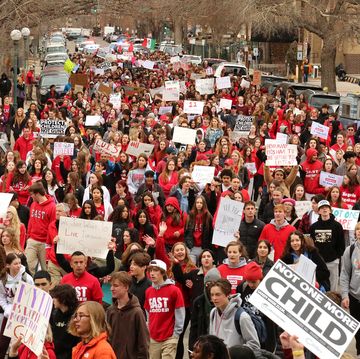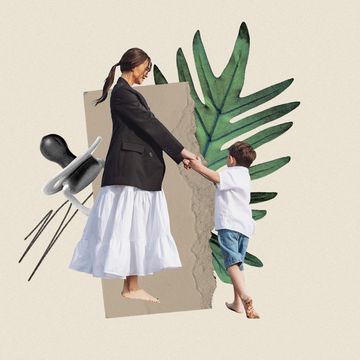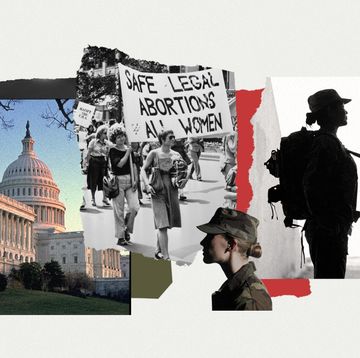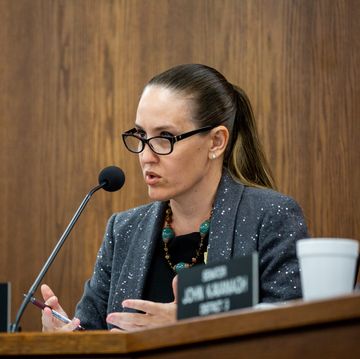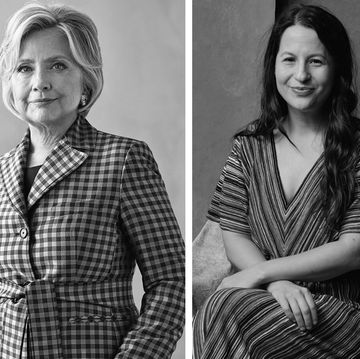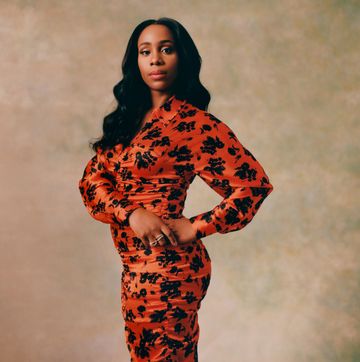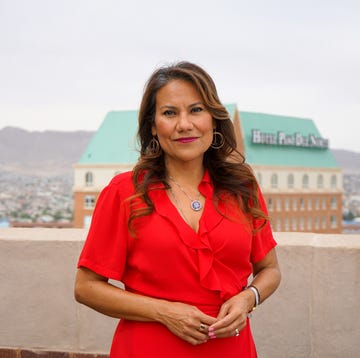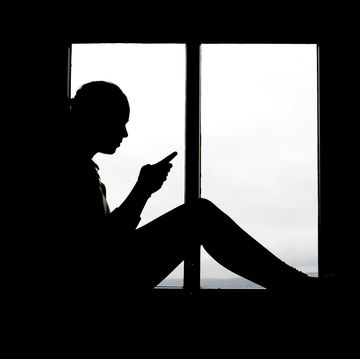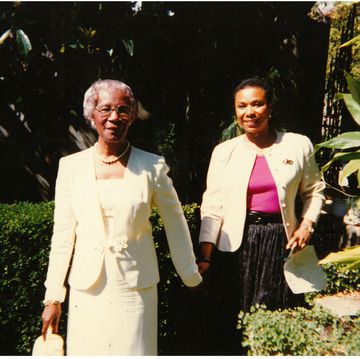When I was twenty-two, I was working as a strategist at a digital agency, and I went on a business trip to Miami to give a presentation to a major Fortune 500 client on our recommendations for the company's social media strategy. For weeks, I brainstormed ideas and slaved over creating the perfect PowerPoint deck for the meeting. The presentation, which I participated in with three more senior colleagues, went well. Afterward, as one of my colleagues and I waited for a taxi back to our hotel, my coworker, who was in her early thirties, congratulated me on a job well done and asked, "By the way, how old are you?" When I responded that I was twenty-two, her tone changed. She immediately squealed, "Oh my God, but you're such a baby! And they're letting you present to clients!"
Whereas a minute ago, she had been impressed with my presentation and my composure in front of major clients, now, having found out my age, she suddenly could only see me as just another twenty-two-year-old: too young to be taking on such a level of responsibility at work. From that day on, no meeting was complete without her making reference to how I was "so young!"—regardless of how good a job I was doing.
Related: 10 Reasons Why You Didn't Get That Job
A year later, at twenty-three, I was at a new job, leading social media efforts for a cable TV channel. A colleague introduced me to another, older coworker, and said, "Nisha is our new social media manager. She sits in the office down the hall." The older coworker responded, "Oh yes, I walked by and saw you in there, and I was like, wow, I didn't know they started letting twelve-year-olds work here!"
Welcome to the new age discrimination?
Every woman knows this to be true: when you tell someone your age, you give them the power to decide how you're perceived. No matter your qualifications, people are predisposed to judge what you are really "worth" to them based on your age. The point of someone asking your age is almost always so that the asker can make a judgment about you based on that age—what other reason is there? Finding out your age is a way for people to size you up, put you in a specific box, determine their expectations for you, and decide whether you meet them sufficiently. For women, age unfairly becomes a standard by which society determines worth: Past a certain age, a woman is viewed as less important, less worthy of attention. Younger than a certain age, a woman is also viewed as less valuable, especially in the workplace—young women are typically viewed as too naïve, too inexperienced. And many young women are often stuck longer than they'd like to be in internship or administrative roles because they allegedly lack the"experience" (which I've found is often just a code word for age and seniority) needed to move beyond entry level.
Related: How Fox's Megyn Kelly Got to the Top, And Why She's Probably There to Stay
For better or worse, the practice of women hiding their age is nothing new. Look at any number of movies and TV shows, and you'll see countless jokes about women and age, and countless female characters hiding and even lying about their age. In Sex and the City, Charlotte York declares on her thirty-sixth birthday: "I've thought about it, and I've decided I'm sticking at '35." She later adds, "Men are more interested in meeting 35-year-olds." In Judd Apatow's 2012 film This Is 40, Leslie Mann's character pretends she's turning thirty-nine and later gets caught lying about her birth year on paperwork at her doctor's office. In September 2013, Sarah Silverman pointedly joked she was "embarrassed" to discover she was forty-two after a slew of ageist barbs were directed at her during a Comedy Central roast of James Franco: "Because it's personal, that is just so woman-based . . . . I feel like your joke is that I'm still alive. My crime is not dying."
America's youth-obsessed culture tends to favor the young, and women of a certain age indisputably face unfair biases, particularly in the workforce where some 65 percent of boomer workers report facing age discrimination, and a recent case affecting workers over forty went all the way to the Supreme Court. More magazine reported in 2008 that older women were filing more age discrimination complaints with the Equal Employment Opportunity Commission (EEOC) than ever before. Earlier in 2013 in Salon, writer Tira Hirpaz summed up what it felt like to be an over-fifty woman in the eyes of society: "If you want to make a person invisible, just put them in the shoes of an over-fifty woman and abracadabra, watch them disappear."
And while I'm still in my twenties—and it's hard to garner a lot of sympathy for being young in a world that places a premium on youth— I never, ever tell anyone my age if I can avoid it.
This piece was excerpted from The 10 Habits of Highly Successful Women


